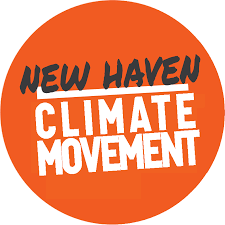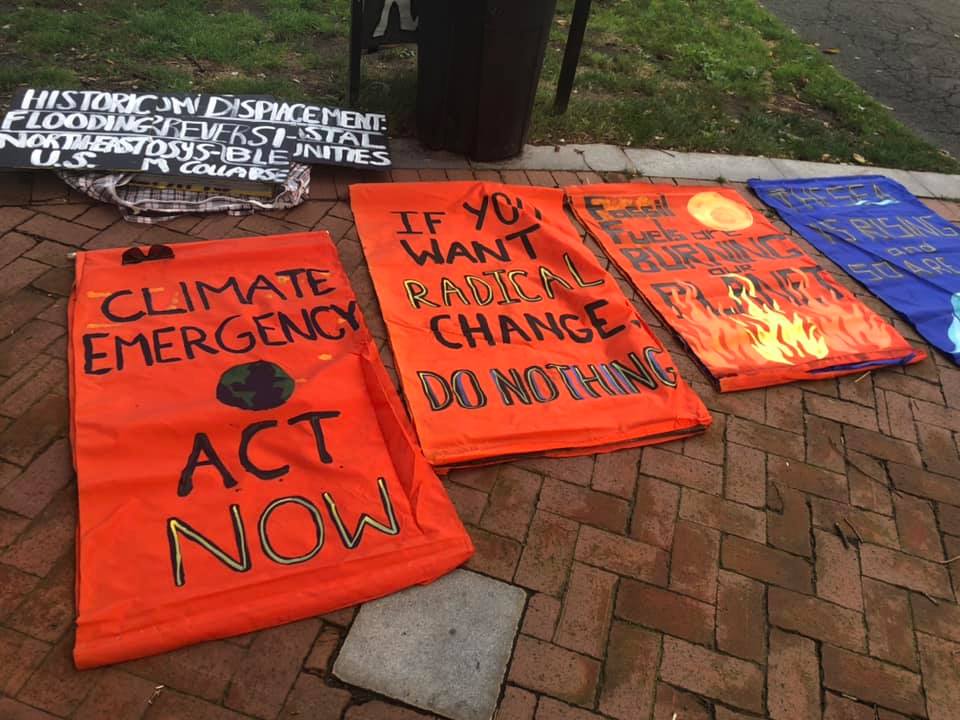Shining light on the advocacy and sustainability work of young environmental leaders working to make their communities safer and cleaner. As part of our commitment to youth engagement and equity, we are holding an ongoing series of interviews with individuals and sharing their stories to spread awareness.

Tackling the climate crisis requires a village, or shall we say a movement? This movement is in dire need of young, dynamic activists to speak truth to power, while mobilizing communities.
Recently, we had the honor of interviewing Adrian Huq, a Tufts University student and climate justice organizer. They serve as an organizer and co-founder of New Haven Climate Movement’s Youth Action Team (established 2019), a group of high school- and college-aged activists fighting for climate action and investments in climate resiliency projects. Within the organization’s Climate Education Committee, Adrian is a key member in their effort to push the New Haven Board of Education to implement interdisciplinary climate education in their schools through the group’s original Climate Justice Schools proposal.
Adrian became interested in the climate movement as a high school student. However, from a young age they found an interest in recycling and that formed into an interest in waste management. They still consider waste management one of their greatest environmental passions and try to incorporate that into their work. Over the course of a few years, Adrian’s involvement in organizing in Connecticut has grown to a much bigger scale.

Here’s what Adrian had to say about New Haven Climate Movement’s projects:
“NHCM currently has four main committees. Our Electric Future Committee is working directly with the City Engineer to electrify buildings and vehicles to reduce greenhouse gas emissions. Our Climate Education Committee is making strides towards achieving interdisciplinary climate education and fostering youth leadership on climate change in New Haven Public Schools with a proposal we created called Climate Justice Schools. We are also pushing the New Haven Board of Education to invest a portion of their Elementary and Secondary School Emergency Relief (ESSER) funds towards climate-related actions such as hiring an energy educator to educate students and families about energy efficiency options, an energy technician to make school buildings more efficient, or projects such as establishing safe walking routes to school, zero waste schools, and student outdoor activities. Our Events Committee organizes monthly events from virtual trivia nights to beach clean ups to engage our community in fun events. Lastly, we have a full-group campaign this year called the New Haven Rescue Plan, where we are pushing the New Haven city government to allocate $9 of their $90 million (10%) of their American Rescue Plan funds towards climate solutions that will improve public health, create jobs, save families money through energy efficiency, and reduce greenhouse gases. “
We asked Adrian to speak on what they were proud of their organization for accomplishing. They said:
“To summarize NHCM’s accomplishments, first, we passed the New Haven Climate and Sustainability Framework in 2018 which outlines key strategies and numerous projects to address the climate emergency in New Haven. In 2019, we passed the New Haven Climate Emergency Resolution by the Board of Alders calling for zero community-wide emissions by 2030, the formation of a climate mobilization task force, and equitable outcomes for marginalized communities. In 2020, we got the City to commit $550,000 in capital funding towards climate infrastructure projects as well as $50,000 in their general budget towards climate solutions, creating a total of $610,000. Later that year, the City’s climate mobilization task force was created, on which three NHCM members serve. In April 2021, the Board of Alders passed our Electrification Resolution calling for the City to fully electrify their buildings, appliances, and vehicles by 2030. Our Climate Justice Schools initiative was also approved by the New Haven Board of Education this spring, and as of this fall, it will begin as a pilot program in five New Haven public high schools.”

In our conversation, Adrian highlighted the importance of having an intersectional lens in climate justice advocacy. As an example, they articulated the disproportionate effects that climate disasters have on the LGBTQ+ community. There are a disproportionate number of people in this community dealing with poverty and homelessness in comparison to straight, cisgender individuals. Higher poverty rates exist for transgender people, especially if they are people of color, disabled, or HIV positive. This translates to LGBTQ+ being more impacted by environmental issues such as exposure to dirty air and water and having fewer resources to recover from climate disasters. Additionally, the LGBTQ+ community has often been left out of or late to receive disaster relief. Some organizations have turned away queer people and denied them shelter, and that is something Adrian hopes to change as their advocacy continues.
We asked Adrian what the future holds for them, as well as what they’re hoping unfolds in the climate movement in the next ten years. They said they want to contribute to the passage of a national Green New Deal to bring about a greener and energy efficient society, or other initiatives that have a bold focus on drawing down greenhouse gas emissions at emergency speed (as close to a 100% reduction by 2030 as possible). They also hope to see strides taken towards achieving a circular economy. They would like to see a reckoning with our country’s excess consumerism and discard habits, eliminating single-use packaging, and healing our broken recycling system.
